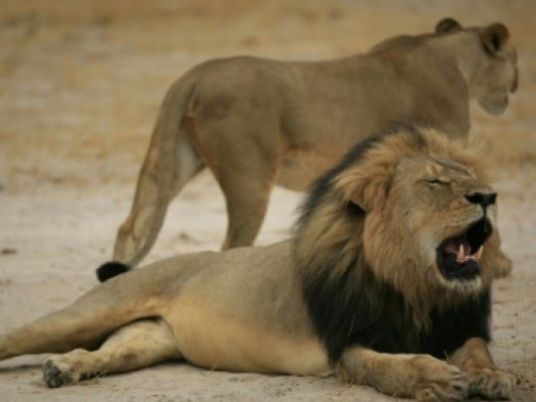
Walter Palmer, the American dentist vilified worldwide for killing a prized Africa lion, broke his silence Sunday in an interview with the Associated Press and the Minneapolis Star Tribune.
The 55-year-old dentist will return to his Bloomington, Minnesota, practice on Tuesday, he said. His practice reopened several weeks ago without him.
"I have a lot of staff members, and I'm a little heartbroken at the disruption in their lives," Palmer told the AP and Star Tribune. "And I'm a health professional. I need to get back to my staff and my patients, and they want me back. That's why I'm back."
Palmer has kept a low profile in the six weeks since he was identified by British media as the big game hunter who killed Cecil the lion with a compound bow near Zimbabwe's Hwange National Park. Cecil was killed in early July.
"I've been out of the public eye seeing family and friends," he said, denying he was in hiding.
"This has been especially hard on my wife and my daughter," he told the AP and Star Tribune. "They've been threatened in the social media, and again … I don't understand that level of humanity to come after people not involved at all."
Social media outrage
To say Cecil's death caused an uproar is putting it mildly.
Social media groaned under the hashtag #WalterPalmer.
"A poor excuse of a human being," "A killer," and "Satan" were just a few of the Twitter insults hurled in his direction.
Celebrities like model Cara Delevingne, actress Alyssa Milano and TV host Sharon Osbourne, who between them have 8.39 million followers, joined in as well.
The allegations
The Zimbabwe Conservation Task Force alleged in July that Cecil the lion was lured out of an animal sanctuary in Zimbabwe and shot with a crossbow.
But his death wasn't immediate.
Cecil lived another 40 hours until the hunters tracked him down and shot him with a gun, the conservation group said. He was then skinned and beheaded.
In the interview with the AP and Star Tribune, Palmer said that he caught up with the lion more quickly and killed it with another arrow.
The hunters also tried to destroy the GPS collar that Cecil was wearing as part of research backed by Oxford University, according to the conservation group.
"I had no idea that the lion I took was a known, local favorite, was collared and part of a study until the end of the hunt," Palmer said late July in a statement. "I relied on the expertise of my local professional guides to ensure a legal hunt."
Two Zimbabweans have been charged in the case and officials in the African nation say they want Palmer extradited to face charges.
The dentist has indicated that he'll cooperate, although he said in a statement that he had yet to be contacted by anyone about the investigation.
In Sunday's interview with the AP and Star Tribune, Palmer was joined by attorney Joe Friedberg, who said he's working as an unpaid consultant to the dentist.
Friedberg said Palmer "doesn't need a lawyer" until either the Zimbabwean or US government makes a legal claim.
"There are no official allegations that he's done anything wrong," Friedberg said.
The dentist shed little new light on the hunt in Sunday's interview.
Palmer said Cecil's tracking collar could not be seen at night when the hunt took place. It was buried in his mane.
The dentist also said it's not illegal to take a collared lion.
Cecil lovers send in donations
The lion's death was followed by a huge boost in donations for conservation efforts, championed by late-night talk show host Jimmy Kimmel, according to Oxford University's Wildlife Conservation Research Unit. Its researchers had been tracking Cecil since 2008.
Through the end of August, over US$977,000 had been raised, enough to fund research into lion conservation in Hwange National Park for four years.
"The sheer volume of donations the University has received from Oxonians and friends worldwide was unexpected and is deeply appreciated," the group said.
Palmer's past indiscretions
Cecil's killing doesn't appear to be the first time Palmer has gotten into trouble while hunting. A man by the same name and age, and from the same town, illegally killed a black bear in Wisconsin several years ago, according to court documents.
That individual pleaded guilty to making false statements knowingly to the US Fish and Wildlife Service, and was sentenced to one year on probation and ordered to pay a fine of nearly $3,000, records show.
A New York Times article in 2009 that profiled Palmer and his hunting methods said he had served a year of probation over the false statements case.
The Times article detailed Palmer's skill and enthusiasm for using archery rather than firearms to slay animals.
He is "said to be capable of skewering a playing card from 100 yards with his compound bow," it said, recounting his killing of a large elk with an arrow in Northern California.
